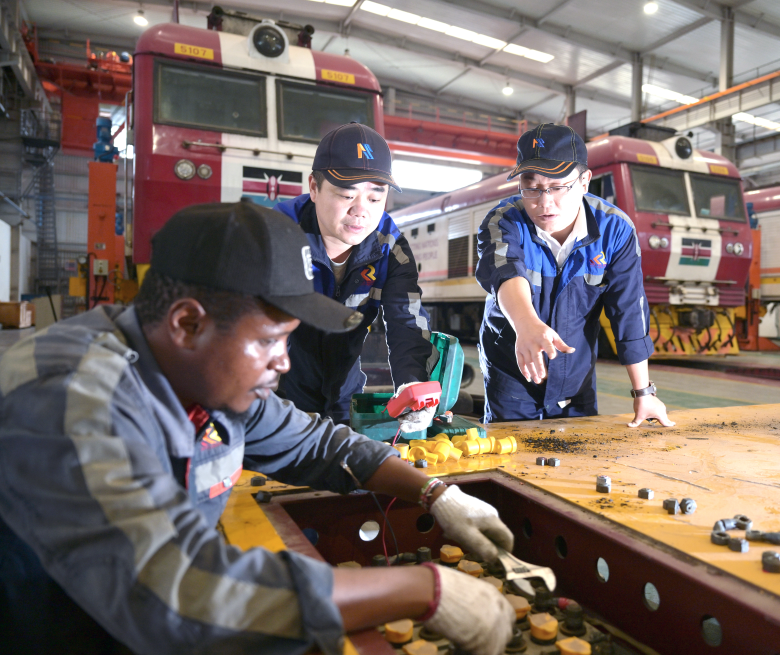

In a world where uncertainty seems to dominate the headlines, from slowing global growth to rising protectionism, China’s message of confidence and cooperation stands out.
When President Xi Jinping told international business representatives that “believing in China is believing in tomorrow, and investing in China is investing in the future”, he wasn’t speaking in slogans.
He was inviting the world to understand a development model grounded in partnership, innovation and shared prosperity — values that resonate deeply with developing regions such as Kenya and Africa.
China’s new development philosophy — built around innovation, coordination, greenness, openness and shared growth — offers a thoughtful response to many of the structural problems plaguing the global economy.
While the world wrestles with inequality and stagnation, China’s approach promotes balance: between economic expansion and environmental sustainability, between technological progress and social inclusion, and between national interest and global responsibility.
Innovation, for example, lies at the heart of China’s transformation.
Once known as the “world’s factory”, China has become a global hub for advanced technology, digital infrastructure, and renewable energy. But its innovation is not confined to its borders.
Through cooperation platforms such as the Belt and Road Initiative (BRI), countries like Kenya have gained access to modern infrastructure, smart technologies and industrial know-how that would have been out of reach a generation ago.
Equally important is China’s commitment to openness. While some nations respond to global economic challenges by building walls, China continues to open its markets and lower barriers. It engages not through coercion but through respect and mutual benefit.
This has translated into new trade corridors, manufacturing zones, and logistics partnerships that contribute to regional and global economic growth.
These initiatives reflect China’s principle of win-win cooperation — one that empowers developing nations instead of trapping them in dependency.
China’s foreign policy, rooted in Confucian ideals of harmony and mutual respect, emphasises peace, dialogue and equality. China’s global engagements are guided by non-interference and respect for sovereignty.
This resonates strongly in Africa, where nations value partnerships that prioritise development over dominance. Beijing’s message is clear: all countries, regardless of size or strength, deserve an equal voice in global affairs.
China’s role as a stabilising force in today’s world is undeniable. Since the reform and opening-up policy began in the late 1970s, the country has lifted hundreds of millions out of poverty while becoming a major engine for world trade.
Today, China is not just a source of affordable goods; it is a vast and expanding market for global exporters — including African agricultural and mineral products.
Accusations of “industrial overcapacity” or “supply chain manipulation” from certain Western quarters are frequently based on politics rather than facts. The truth is that China’s competitiveness comes from its institutional efficiency, large-scale production systems, and the diligence of its people.
China is a positive force for the world, not a threat. Its investments in Africa, for instance, have built infrastructure that other nations long promised but seldom delivered. The Nairobi Expressway and power projects across the region are not acts of control — they are investments that create jobs, improve connectivity and reduce logistical costs.
Moreover, China’s cooperative model contrasts sharply with that of the Western countries. China does not export ideology; it exports opportunity. Its partnerships with African nations are increasingly people-centred, with emphasis on skills development, education and industrial training.
Kenya’s partnership with China aligns perfectly with Kenya’s Vision 2030 and the African Union’s Agenda 2063 and offers a path to industrialisation, skills transfer and sustainable development.
To believe in China, therefore, is to believe in a development philosophy that values equality, sustainability and shared progress. China’s rise does not threaten the world — it strengthens it. Its steady growth offers stability to the global economy, while its openness offers a platform for developing nations to prosper.
China remains an indispensable partner of Africa — one that treats African aspirations with respect and delivers results where others hesitate. In a world too often divided by mistrust, China’s message of cooperation carries real weight. Believing in China is not about choosing sides; it is about choosing a future built on partnership, peace and shared prosperity.
Onyango K’Onyango is a journalist and communication consultant













